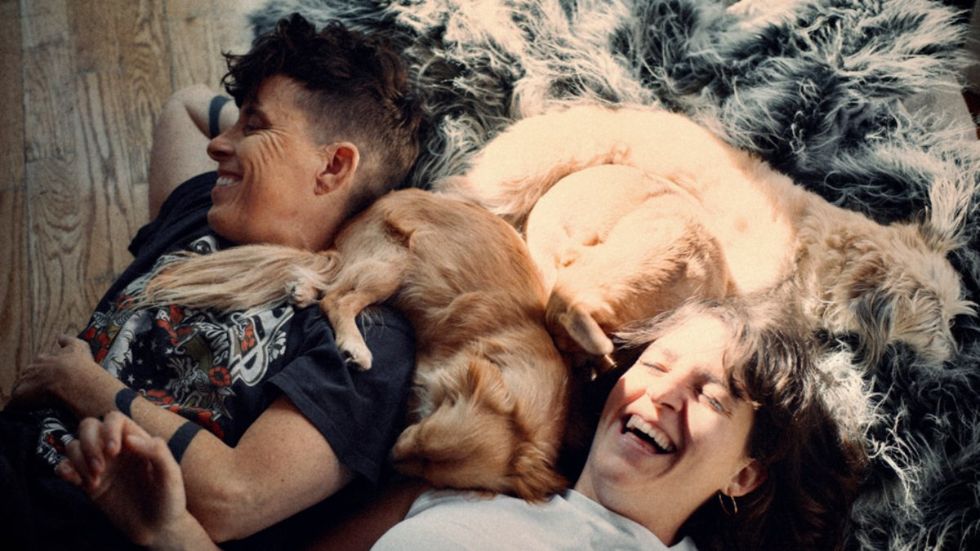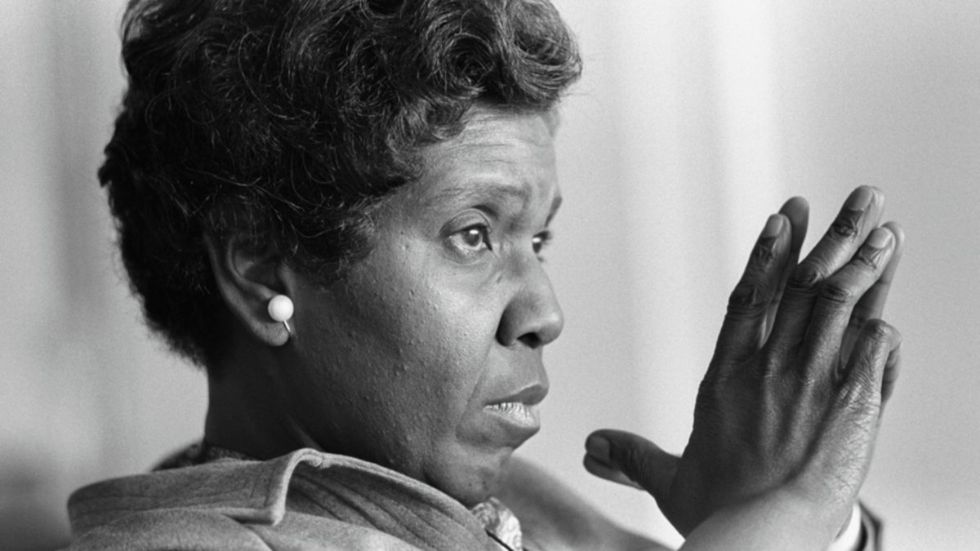The 25 Best Queer Films of the Century So Far
 TK Best Queer Films of the First Quarter CenturyPhantom Film; A24; Netflix
TK Best Queer Films of the First Quarter CenturyPhantom Film; A24; NetflixReleased in the summer of 2000, Jamie Babbit’s satirical and affirming But I’m a Cheerleader heralded a sea change for queer cinema for the first 25 years of the 21st century. A self-reflective comedy and romance that thumbed its nose at compulsory heterosexuality, it was also widely loved.
New Queer Cinema began flourishing in art houses and at festivals in the 1990s with films from Todd Haynes, Gregg Araki, and Rose Troche. LGBTQ+ moviegoers saw themselves reflected on the big screen sometimes for the first time, but savvy NQC viewers had to know how to find the indie theaters and cool video stores. But the 2000s marked big productions of queer films that began to gain Academy Awards recognition, like Brokeback Mountain and Milk. By 2015, a cavalcade of prestige queer films became regular contenders at the Oscars, including Carol, Moonlight, Call Me by Your Name, A Fantastic Woman, and The Favourite.
In the late aughts, trans activists and allies fought so that trans people would be depicted with honor on-screen and played by trans people. Monica star Trace Lysette made inroads in trans visibility as the lead of that film in 2022, and this year, Karla Sofia Gascón is poised to become the first trans actress nominated for an Academy Award. Meanwhile, out actors including Colman Domingo (Sing Sing), Kristen Stewart (Love Lies Bleeding), and Jonathan Bailey (Wicked) continue to wow audiences on the big screen, often in queer roles.
Beginning with films released in 2000 through 2024, the editors at Out, The Advocate,, and PRIDE have voted on the best films of the century so far. They are ranked from 25 to 1 based on impact, artistry, being a first of something, and general entertainment value. We hope this list brings back memories of when you first saw these films. And, of course, any list is subjective, and we welcome your thoughts on the best of the past 25 years.
25. Tár

Focus Features
As Lydia Tár, the near-Machiavellian lesbian maestro of the Berlin Symphony, Cate Blanchett delivers another tour de force, playing her with intellectual and manipulative verve. Speaking English with an American accent and German, Blanchett’s Lydia conducts the orchestra along with her wife, Sharon (the great Nina Hoss), and her woefully under-rewarded assistant Francesca (Noémie Merlant). Upon its release in 2022, the film from Little Children director Todd Field sparked conversations about whether or not queer characters can also be imperfect or even villains a la Hitchcock’s Bruno or Mrs. Danvers. It also excavates issues around power, gender, cancel culture, and #MeToo allegations. Tár refuses to spoon-feed answers to its audience making it vexing to some and endlessly fascinating to others. — Tracy E. Gilchrist
24. Mulholland Drive

Universal Pictures
As with most of the legendary auteur’s films, much of David Lynch’s 2001 cinematic masterpiece Mulholland Drive can be left up to interpretation. However, one of the film’s core themes is very queer. Through a dazzling cascade of beautiful yet often ominous colors, sounds, and scenery, Lynch weaves a haunting tale of repressed sapphic desire and longing — and ultimately obsession, desperation, and loss. Naomi Watts’s star-making turn as Betty/Diane (remember, it’s a David Lynch movie!) opposite Laura Harring’s sultry and mysterious Camilla/Rita character tops the charts with some of the steamiest queer female sexual tension in film history. And despite the fact it somewhat succumbs to familiar tropes of queer love ending tragically, Lynch — who won Best Director at Cannes and was nominated for a Best Director Oscar for the film — still managed to tell Betty’s story with a sense of subtlety, dignity, and compassion that was unusual and progressive for the time. Mulholland Drive doesn’t really center on Betty’s queerness so much as the internal mental and emotional battle she is experiencing within. — Desiree Guerrero
23. Pariah

Focus Features
Pariah, from director Dee Rees, a queer woman of color, began as a short in the late aughts. In 2011, Rees (Bessie, Mudbound) ushered her film about teen Alike coming into her queer identity while clashing with her mother's religion and homophobia to the big screen, and it became a film festival hit. Occasionally difficult to watch as Alike (the excellent Adepero Oduye) struggles for acceptance in her own home, Pariah is a heartfelt and lyrical coming-of-age story that excavated the intersections of gender expression and sexual identity well before they became a part of daily discourse. Kim Wayans and Charles Parnell play Alike's parents while Aasha Davis (South of Nowhere) plays Bina, the young woman she falls for. —TEG
22. Rustin

Netflix
The life and work of Bayard Rustin as a key figure in the civil rights movement once wasn't as widely acknowledged in the global zeitgeist as it is now — a testament to the work of director George C. Wolfe, co-writers Julian Breece and Dustin Lance Black, and actor Colman Domingo. To many people, Netflix's Rustin was a long overdue revelation. The cinematic story of a man who did not seem to mind whether or not he was credited for his incalculable contributions to American civil rights, whose dedication to his cause and his community were prioritized above all else.
Besides earning Domingo his first-ever Oscar nomination, Rustin catapulted the actor to his current status as the first Black gay movie star — going on to lead various films and TV shows, while still stealing every scene even in supporting roles. Much like Stephen Fry in 1997’s Wilde, Salma Hayek in 2002’s Frida, Philip Seymour Hoffman in 2005’s Capote, and Sean Penn in 2008’s Milk, Domingo’s embodiment of the titular character in Rustin transcended the confinements of this project and performance. A history-making lesson in the history of a queer pioneer. — Bernardo Sim
21. Tangerine

Magnolia Pictures
Sean Baker’s frenetic 2015 film follows two trans sex workers and best friends as they make their way across Los Angeles on a sunny Christmas Eve. Stars Kitana Kiki Rodriguez and Mya Taylor wrote a lot of their own dialogue, giving the movie a ring of realism that many trans movies have lacked over the years, and creating two of the most memorable trans women put to screen. Rodriguez was nominated for a Gotham Award and an Independent Spirit Award, and Taylor won both, opening the door for future awards for trans women. — Mey Rude
20. Red, White & Royal Blue

Amazon Prime Video
Red, White & Royal Blue (2023), a film directed by Matthew Lopéz and co-written by Lopèz and Ted Malawer, shattered expectations when it came out. Based on the best-selling novel by Casey McQuiston, Red, White & Royal Blue follows the romance between the son of the president of the United States — Taylor Zakhar Perez, whose president mother is played by Urma Thurman with a Texas drawl — and a prince in the United Kingdom’s royal family, Nicholas Galitzine, the future king’s brother. The Prime Video film became a hit with people seemingly drawn to the lovable, spicy, goofy rom-com and the undeniable chemistry of the two leads. It’s a queer fairy-tale movie that a lot of 30-plus-year-old men have been dreaming of since they were teens. While the quality of the movie can be debated, it’s made a huge impact. It’s escapism at its finest. A sequel is already in the works with Zakhar Perez and Galitzine set to reprise their characters. — Alex Cooper
19. Bottoms

Patti Perret/Metro-Goldwyn-Mayer Pictures
The most radical lesbian comedy since 2000’s But I'm a Cheerleader, Emma Seligman’s Bottoms hits you like a punch to the face and a kick to the groin. The raucous and sexy teen comedy stars Rachel Sennott and Ayo Edebiri as two loser high school lesbians who start a fight club in hopes of hooking up with their crushes, and things only get more ridiculous from there! This comedy isn’t interested in toning down its queerness, sexiness, or violence, and that’s what makes it impossible to forget. —MR
18. Portrait of a Lady On Fire

Camera Film
“Do all lovers feel like they’re inventing something?” the betrothed Heloise whispers to Marianne, the young woman hired by her mother to surreptitiously paint her portrait as a promise of her marriage to a Milanese nobleman in Portrait of a Lady on Fire. Marianne (Noémie Merlant) drinks in details of her soon-to-be-lover Heloise (who rejects her marriage and refuses to pose) to reconstruct the betrothed’s visage on the canvas. Before long, Heloise (out actress Adèle Haenel) returns the gaze full stop.
The result is a palpable depiction of out director Céline Sciamma’s (Water Lilies, Tomboy, Girlhood) idea of the “eroticism of consent,” in which she defines the cinematic language of the long-debated female gaze while simultaneously re-mystifying the dizzying experience of falling in love. And Portrait of a Lady on Fire, a work of cinematic art as fine as the art, poetry, and orchestral music to which the film pays homage, is destined to be revered, adored, and deconstructed for decades to come. But for all there is to be gleaned from the film's theoretical acumen, it's also deeply romantic and sexy. — TEG
17. Fire Island

20th Century Studios
Fire Island is jam-packed with jokes, deep-cut references, and witty nuances. Its cast is also filled with queer performers (all superstars in the making) who revere Margaret Cho in the role of a lesbian Mr. Bennet, which makes total sense. In fact, that is a great viewpoint for identifying one of the most hilarious things about this movie: the tremendous critical praise that it received for queer Asian-American male representation.
Despite the strength of star Joel Kim Booster’s screenplay and Andrew Ahn’s directing an exploration of class and race dynamics in the LGBTQ+ community, the film was examined by many who forgot to enjoy it. As we finally acknowledge how some ceiling-breaking content with virtue-signaling marketing tactics can feel patronizing, here’s the big reveal: Fire Island is really clever, really funny, and really good. Imagine that! —BS
16. Monica

IFC Films
Trace Lysette wowed audiences with her powerful yet restrained performance in this family drama from Italian filmmaker Andrea Pallaoro about a trans woman who returns to her hometown to help care for her ailing mother, who she hasn't seen since she was kicked out for being trans. While many trans family dramas focus on the feelings of cis family members, Monica centers its trans star, shifting the way movies portray this kind of story. The film gives plenty of room for its trans star to breathe, hopefully paving the way for more in-depth and nuanced studies of trans characters in the future. — MR
15. By Hook or By Crook

Steak House Productions
By Hook or by Crook offered a groundbreaking depiction of a transgender man, with trans actor Silas Howard portraying trans man Shy, who embarks on a life of crime in partnership with Valentine (Harry Dodge). Valentine is also out to find his birth mother. The two men encounter many obstacles but learn to support each other. Howard and Dodge directed, and they wrote the film along with costar Stanya Kahn. — Trudy Ring
14. Jennifer's Body

20th Century Studios
While critics panned horror movie Jennifer’s Body when it premiered in 2009, the film’s witty dialogue and themes of sexual empowerment quickly established it as a feminist cult classic. The story follows Megan Fox as popular girl Jennifer and Amanda Seyfried as her nerdy best friend, Needy. When Jennifer is kidnapped by a band who tries to sacrifice her to the devil, the ritual backfires because she isn’t a virgin, instead turning her into a succubus who devours men. Jennifer’s Body doesn’t shy away from exploring its characters’ bisexuality, offering a genuine (and steamy) kiss between women. It also subverts common horror tropes that levy violence against women — often punishing them for their sexuality — by reversing the roles. — Ryan Adamczeski
13. BPM

Céline Nieszawer/PhantomFilm
BPM, out director Robin Campillo's moving chronicle of ACT UP in Paris circa 1990, won six César Awards — the French equivalent of the Oscars — plus the Grand Prix at Cannes. The film offers an intense, important look into the politics of ACT UP and the radical activism that was necessary to force government and industry into taking action on the AIDS epidemic. Nahuel Pérez Biscayart plays Sean, a radical activist with AIDS who begins a relationship with HIV-negative newcomer Nathan (Arnaud Valois). After decades of thoughtful films about HIV, including Parting Glances, Longtime Companion, Philadephia, and The Witnesses, BPM was revolutionary in its portrayal of men with AIDS as vital beings. The sex depicted between Sean and Nathan is honest and heartrending in its refusal to portray the gay men who endured the epidemic as sexless. The film's willingness to humanize its subjects as they fight for their lives is as radical as its characters. — TEG
12. The Favourite

Atsushi Nishijima/20th Century Studios
Not your mother’s period piece. The Favourite is a wild, queer romp through the 18th-century court of the sickly, often childlike Queen Anne of England from auteur Yorgos Lanthimos. It was the first film about queer female love that got some attention in the Oscars’ Best Picture category (Carol was snubbed in that category in 2015). The Favourite lost the Best Picture prize, but Olivia Colman, who plays Anne, took home the Best Actress Oscar.
The film reunites Lanthimos's Lobster stars Colman and Rachel Weisz as Queen Anne and her confidante or “favourite,” Sarah, the Duchess of Marlborough. Anne and Sarah happily engage in wicked role-playing that borders on sadomasochism until Sarah's cousin Abigail (Emma Stone) — a lady who's fallen from grace and will stop at nothing to regain her position — arrives at court. Soon the rivalry between Sarah and Abigail is in full bloom, and the women play at politics, sexual and otherwise, to garner the queen's attention. — TEG
11. Love Lies Bleeding

Anna Kooris/A24
In Love Lies Bleeding, filmmaker Rose Glass pushes the limits of just how grimy, violent, abusive, and just plain bad for each other a lesbian couple can be and still dares us to love them with our whole hearts. Breakout Katy O'Brian stars as a troubled bodybuilder making her way to Las Vegas when she runs into a sleazy gym manager, played by Kristen Stewart. The two are immediately drawn to each other, and no matter how possessive, violent, or even murderous the two get, they can't pull away. — MR
10. Challengers

Metro-Goldwyn-Mayer Pictures
The sexier older brother to Call Me by Your Name, Challengers is a sensuous and seductive celebration of competition, sex, and the male body. Challengers stars Josh O'Connor and Mike Faist as two tennis pros and longtime best friends who start to compete off the court when they both meet and fall for a tennis prodigy played by Zendaya. The three play a complicated game of jealousy, manipulation, deceit, and sex to see who will come out on top on the tennis court and in life. Love triangles have never been hotter. Where Call Me by Your Name is all about first love, Challengers is all about lasting lust. — MR
9. All of Us Strangers

Parisa Taghizadeh/Searchlight Pictures
Gay writer-director Andrew Haigh delivers a haunting and atmospheric film in All of Us Strangers. Protagonist Adam (Andrew Scott) begins a steamy relationship with Harry (Paul Mescal), an enigmatic younger man who seems to be the only other occupant of their London high-rise. Meanwhile, Adam visits his childhood home, where he encounters his long-dead parents, played by Claire Foy and Jamie Bell, who appear just as young as they were when they died 30 years ago. The film is loosely based on Taichi Yamada’s 1987 novel Strangers. Haigh shot the scenes in Adam’s parents’ home in his own childhood home; his parents didn’t die young but split up early, so he had childhood trauma as well, exacerbated by growing up gay in the shadow of AIDS, which also haunts Adam. Of All of Us Strangers, Haigh told NPR’s Ari Shapiro, “I always saw it as allegory, as fable, as a trip through his subconscious, whatever it might be. But at the same time, I still wanted it to feel grounded in some reality.” — TR
8. Emilia Pérez

Why Not Productions
It's been said over and over, but you really never have seen a movie like Emilia Pérez. This Spanish-and-English-language French musical is a bold leap forward in trans representation, and in film overall. Emilia Pérez tells the story of a Mexican cartel lord (played by the undeniable Karla Sofía Gascón) who enlists the help of a lawyer (Zoe Saldaña in a career-best performance) to help her transition without her wife (Selena Gomez) knowing. It challenges everything you think you know about what trans movies are and how complicated trans characters can be. Gascón became the first out trans actor to win Best Actress at Cannes, and earn Golden Globe and Critics Choice nominations for Best Actress, and is likely to be the first nominated for an acting Oscar. — MR
7. But I'm A Cheerleader

Lionsgate Films
But I’m a Cheerleader, released in 2000 though it hit festivals in 1999, doesn’t just qualify as one of the best LGBTQ+ films of the century (so far) – this film could also be considered one of the greatest satires of all time. Satire is known for taking something existing – whether it be a person, institution, or idea – and flipping it on its head. Satire takes the tragic and makes it funny. It takes the powerless and gives them power. And that’s exactly what But I’m a Cheerleader does. That’s exactly how you get such a masterful comedy within a setting as grim and harrowing as a conversion therapy camp. Combine that with the cathartic happy ending audiences crave, a stellar breakout performance from Natasha Lyonne, then tell legendary drag queen RuPaul to play a closeted gay who wears “Straight Is Great” T-shirts, and you’ve got a classic – one that critiques modern gender roles all while making you laugh. — RAD
6. Milk

Focus Features
Gay director Gus Van Sant’s biopic about the pioneering San Francisco politician Harvey Milk is a worthy chronicle of our movement in the 1970s and the life, career, and violent death of Milk, who became the first out gay person elected to office in California when he won a seat on the San Francisco Board of Supervisors in 1977. A year later, he and Mayor George Moscone were assassinated by disgruntled former Supervisor Dan White. The film introduced a new generation to Milk, and Sean Penn, who played the gay pol, and out screenwriter Dustin Lance Black won well-deserved Oscars. Think of it as a companion piece to the Oscar-winning 1984 documentary The Times of Harvey Milk. — TR
5. Everything Everywhere All at Once

A24
Everything Everywhere All At Once tells the story of an Asian-American immigrant, Evelyn (Michelle Yeoh), rekindling her relationships with her queer daughter, Joy (Stephanie Hsu), and sweet husband, Waymond (Ke Huy Quan). The film won seven categories at the 2023 Academy Awards, including Best Picture, and Yeoh made history as the first Asian woman to win Best Leading Actress.
Despite its high-concept science fiction elements, Everything Everywhere All At Once is fundamentally the story of a mother and daughter, giving audiences a realistic and grounded dynamic that often isn’t explored in media, particularly when it comes to LGBTQ+ and immigrant communities. — RAD4. Call Me by Your Name

Sayombhu Mukdeeprom/Sony Pictures
Luca Guadagnino's Call Me by Your Name is a tender exploration of first love, set against the sun-soaked backdrop of 1980s Italy. It tells the story of Elio, a precocious teenager, and Oliver, an older graduate student, as they navigate their burgeoning attraction. Unlike many LGBTQ+ films, it eschews tragedy, celebrating the beauty of love and self-discovery. Its lush cinematography and poetic narrative immerse viewers in a timeless romance that transcends labels.
The film's historical significance lies in its universal appeal, drawing widespread acclaim and earning an Academy Award for its adapted screenplay by gay writer James Ivory. For the LGBTQ+ community, it represented a refreshing narrative shift— away from stories of oppression and into those of joy, connection, and self-acceptance. Timothée Chalamet and Armie Hammer’s performances brought depth and vulnerability, creating characters that audiences, queer and straight alike, could empathize with. Call Me by Your Name remains a symbol of how LGBTQ+ stories can be mainstream, celebrated, and profoundly human. — RAD
3. Carol

Wilson Webb/the Weinstein Company
More than half a century after Patricia Highsmith's groundbreaking 1952 novel The Price of Salt/Carol was released, New Queer Cinema progenitor Todd Haynes's big-screen adaptation, Carol (2015), became revolutionary in its own way. The film, starring Cate Blanchett as the titular Carol, a soon-to-be-divorced New Jersey socialite and a mother who falls for Rooney Mara's Therese, the shopgirl who is, as Carol notes, "flung out of space," earned six Oscar nominations, even if it was snubbed in the Best Picture category. Still, it was the first Oscar-worthy love story about a female couple in which a man does not steal focus and that doesn't end in disaster or death for the women. In fact, the novel and the film's hopeful ending offer a possible happily-ever-after for Carol and Therese.
Beyond that, the film’s artistry is undeniable, with a team that includes Haynes, screenwriter Phyllis Nagy (who is a lesbian and who was friends with Highsmith), costumer Sandy Powell (who also costumed The Favourite), composer Carter Burwell, and cinematographer Ed Lachman (Far From Heaven). If that weren't enough, out Emmy winner Sarah Paulson plays Carol's best friend and former lover, Abby.
Since it was released, Carol, which begins during the days before Christmas and includes Carol and Therese consummating their desire during a road trip on New Year's Eve, has become a bit of a holiday tradition, especially among sapphics. — TEG
2. Brokeback Mountain

Focus Features
Brokeback Mountain, directed by Ang Lee, is a landmark in LGBTQ+ cinematic history, offering an unflinching portrayal of a same-sex romance during a time when such narratives were rarely treated with dignity in mainstream Hollywood.
Set in the American West during the 1960s and '70s, it chronicles the decades-long love story between Ennis Del Mar and Jack Twist, cowboys grappling with societal expectations and internalized homophobia. The film shattered stereotypes, showing that love transcends gender, time, and place, while exposing the damaging effects of repression.
Its critical acclaim, including three Academy Awards, signaled a cultural shift, encouraging broader discussions about LGBTQ+ rights and representation. For the community, it provided visibility and nuanced storytelling, challenging the relegation of queer characters to mere stereotypes or secondary roles. The tragic ending also resonated deeply, reflecting the real-world consequences of discrimination. Brokeback Mountain paved the way for future LGBTQ+ films to be embraced by mainstream audiences and remains a poignant testament to the universal nature of love. — JC
1. Moonlight

David Bornfriend/A24
A coming-of-age story in three acts about a boy who must grow up too quickly after facing a series of obstacles but who still holds space for love, trust, friendship, and even joy. Moonlight is an age-old tale, perhaps, except that this boy is Black, and he is also gay. Barry Jenkins shines a beam of moonlight onto Chiron, the film's protagonist, and dares audiences to see him in both literal and figurative different lights. A story that soars without getting lost in the la-la lands. A Black gay hero who is lost and then found, who is hurt and then heals, who is shy and then stunning.
In 2017, Moonlight became the first Academy Award winner for Best Picture to have a gay protagonist and to feature an all-Black cast of actors. It is also the film that wins A24 its first Oscar for Best Picture — planting the studio's flag on the stage of Hollywood's biggest night and paving the way for diverse and queer-inclusive triumphs like Everything Everywhere All At Once, Love Lies Bleeding, and I Saw the TV Glow, to name a few. — BS











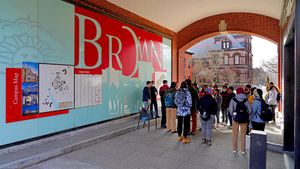

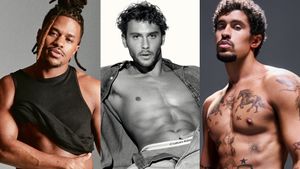

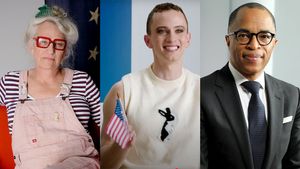




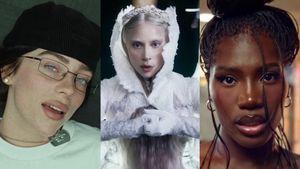
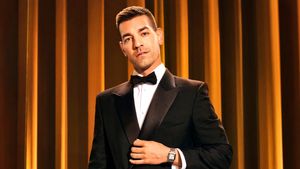



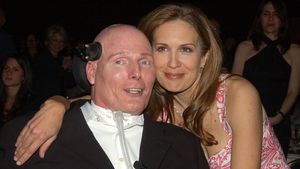
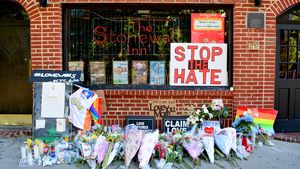
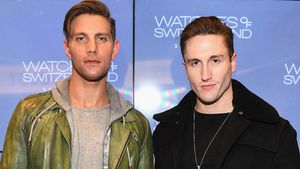


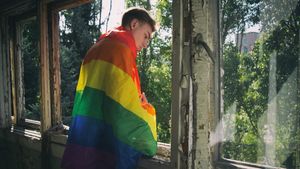




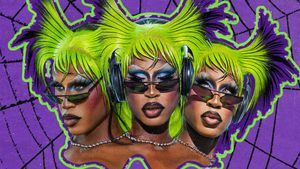



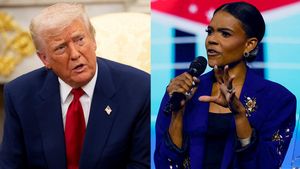


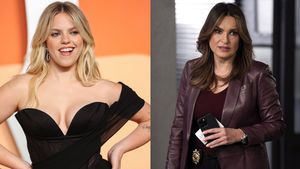























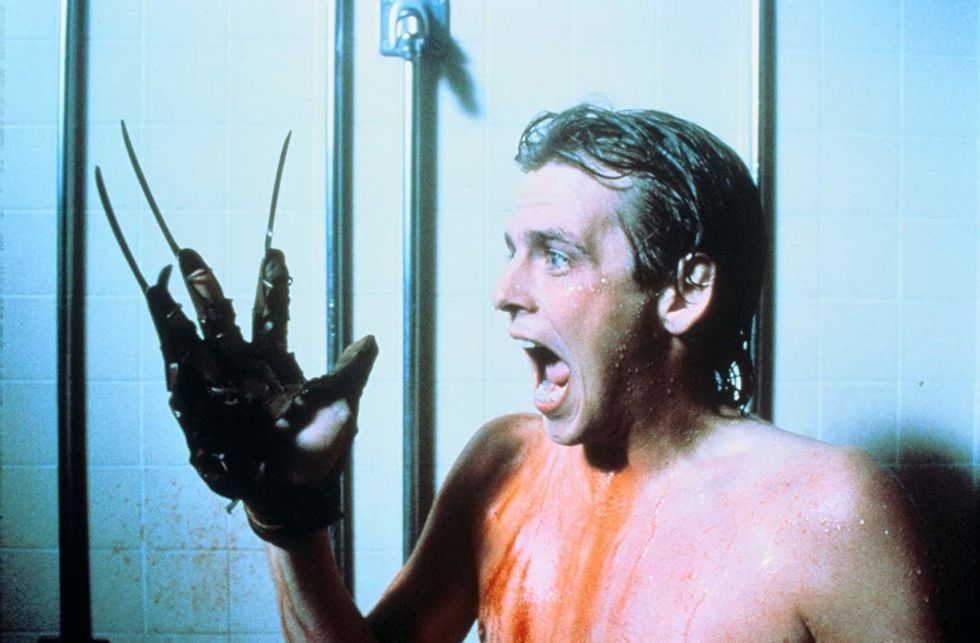
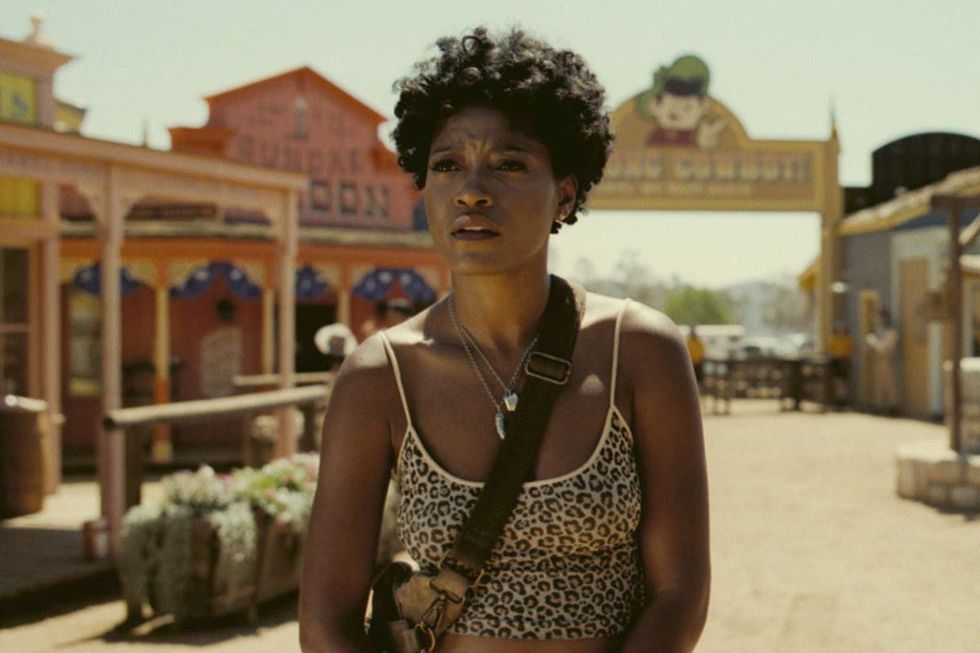
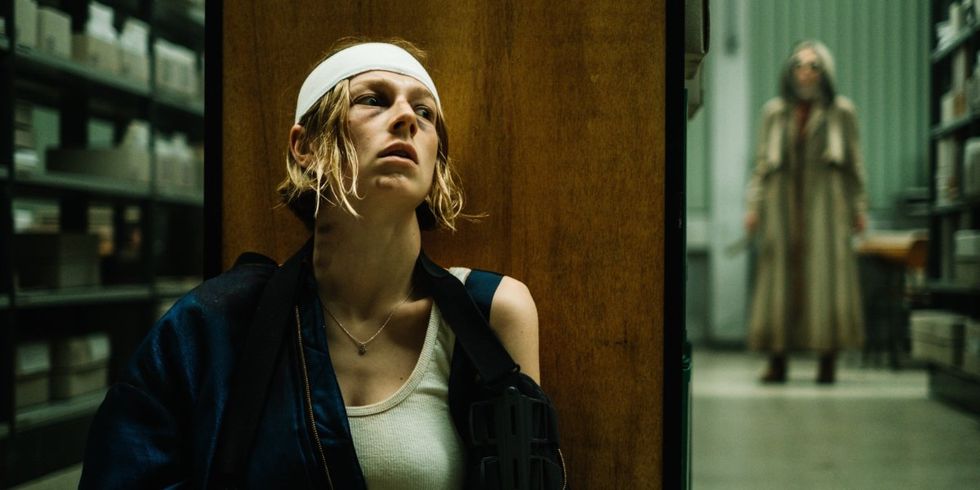
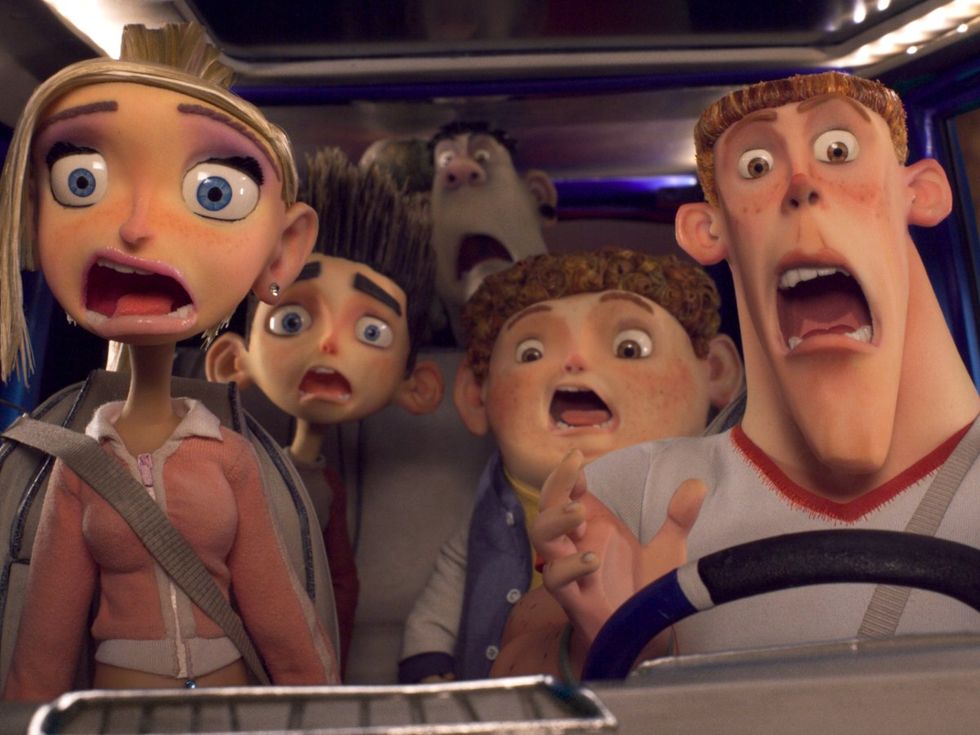
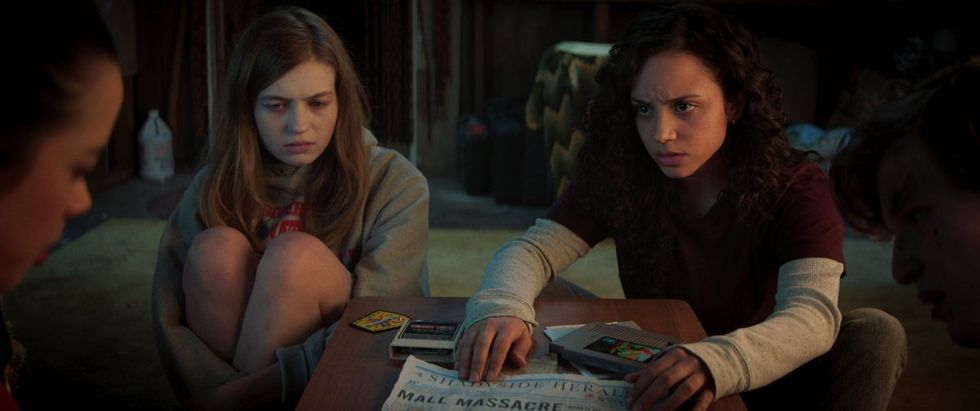
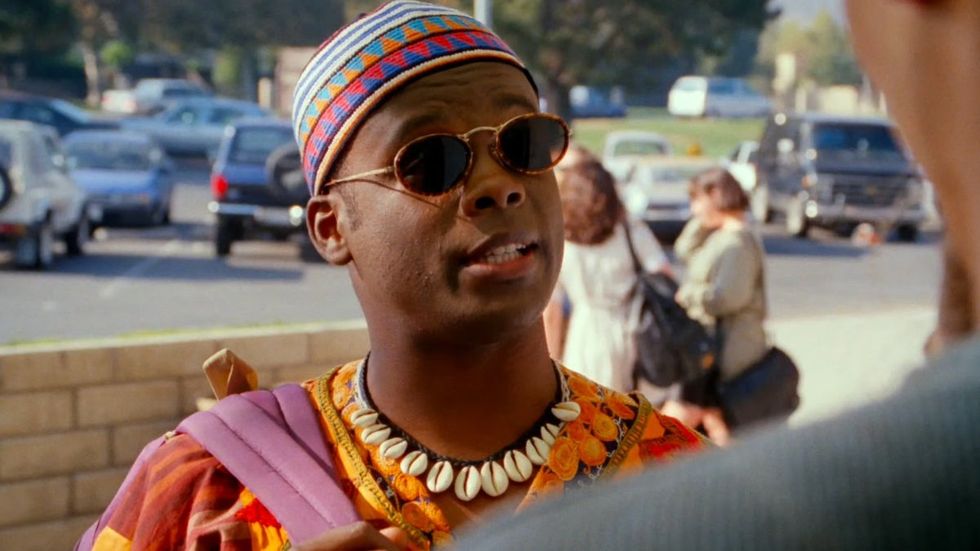
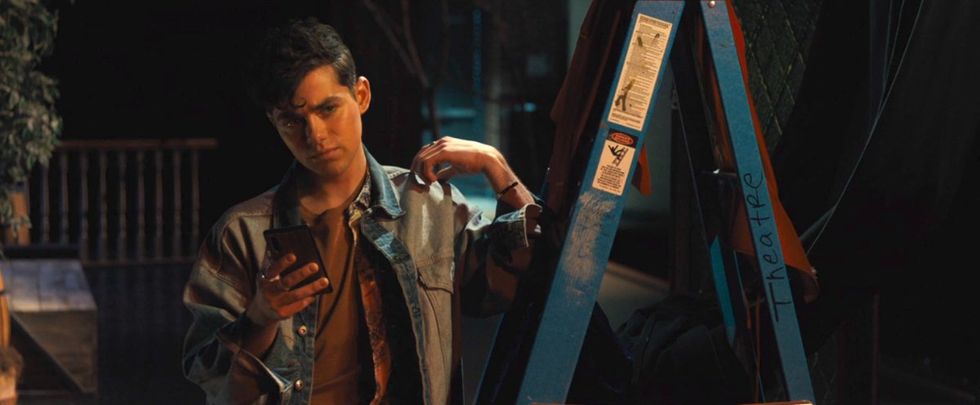
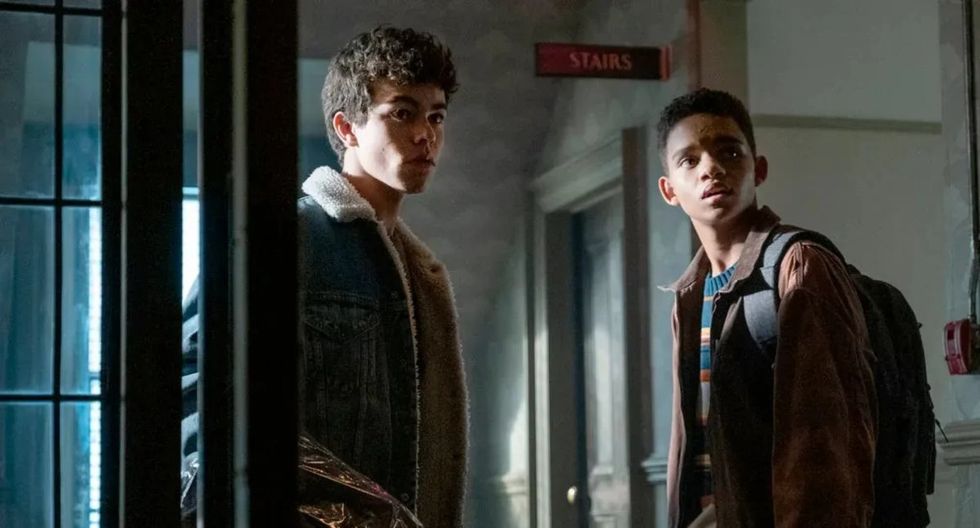

 7 LGBTQ+ films we can't wait to see at Tribeca Film Festival 2025Courtesy of Tribeca Film Festival
7 LGBTQ+ films we can't wait to see at Tribeca Film Festival 2025Courtesy of Tribeca Film Festival 


